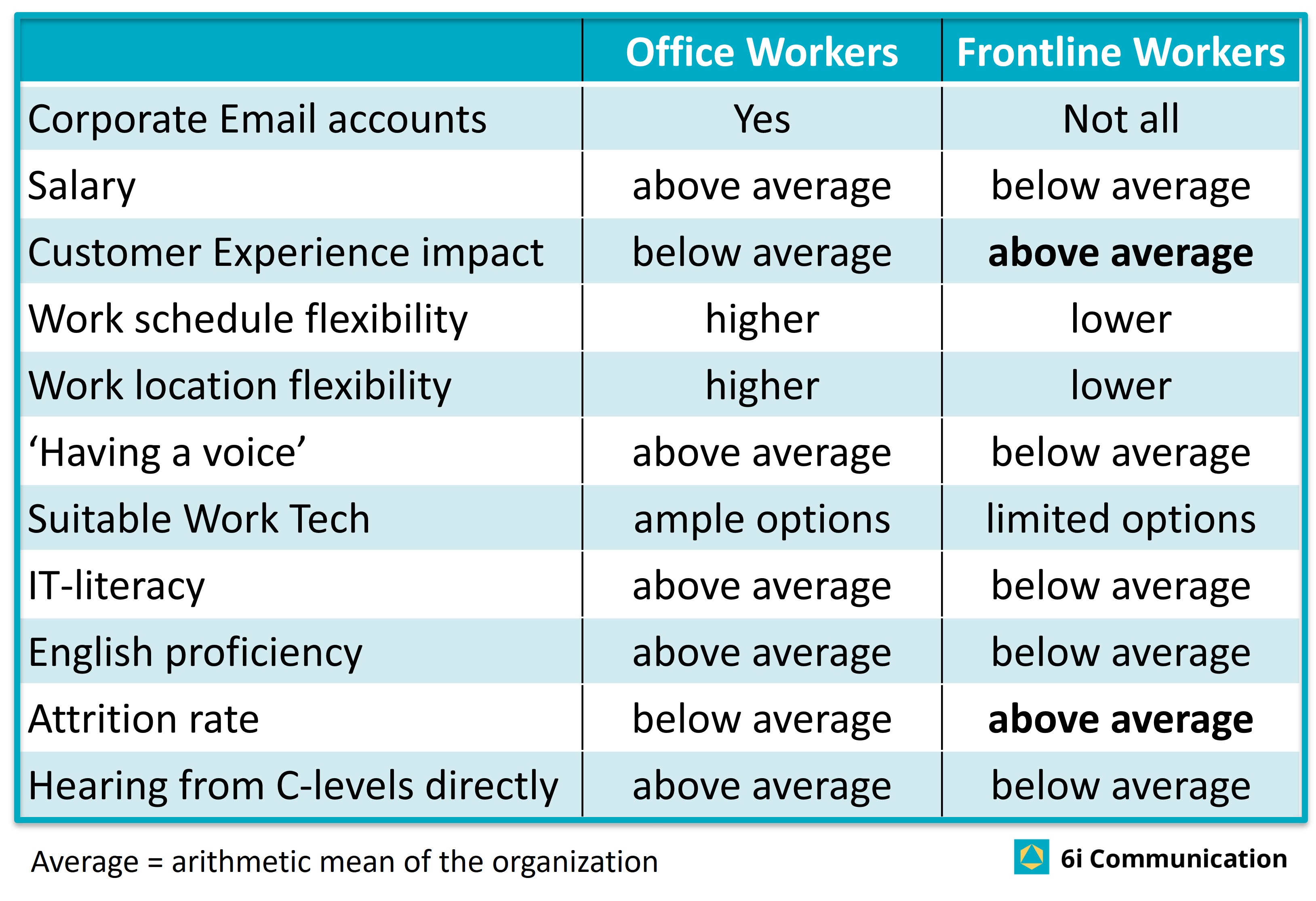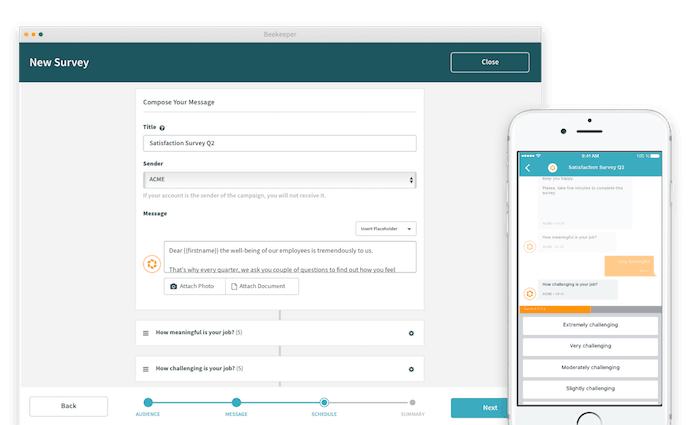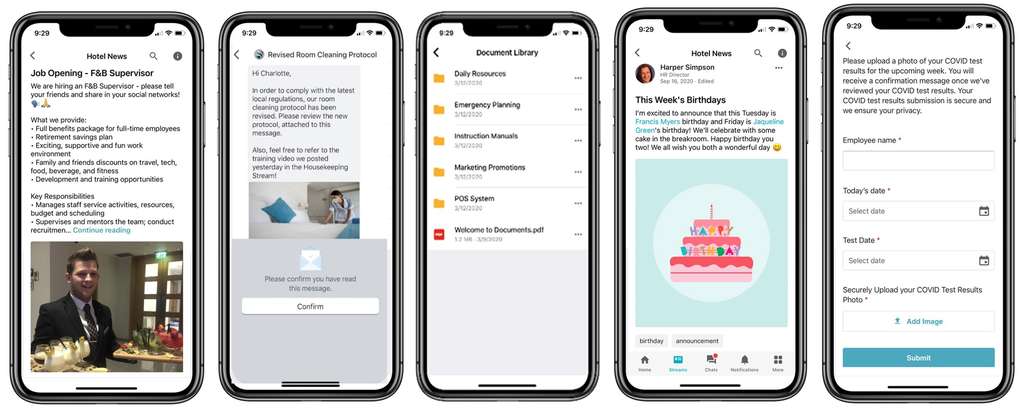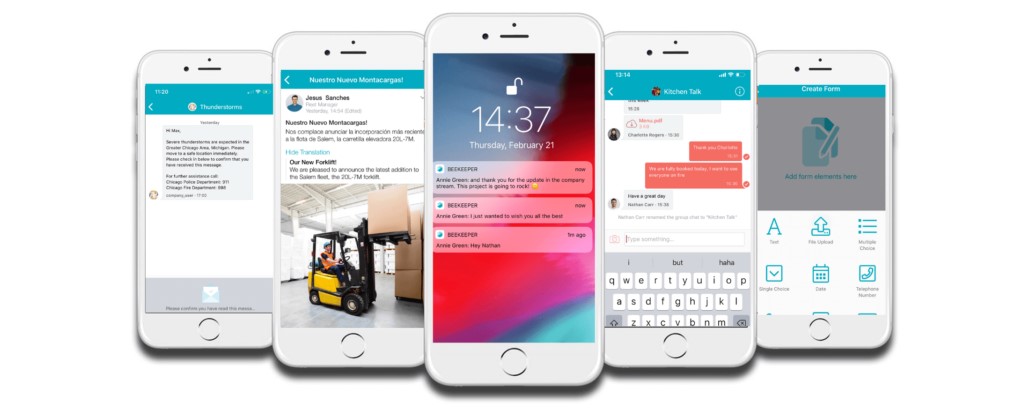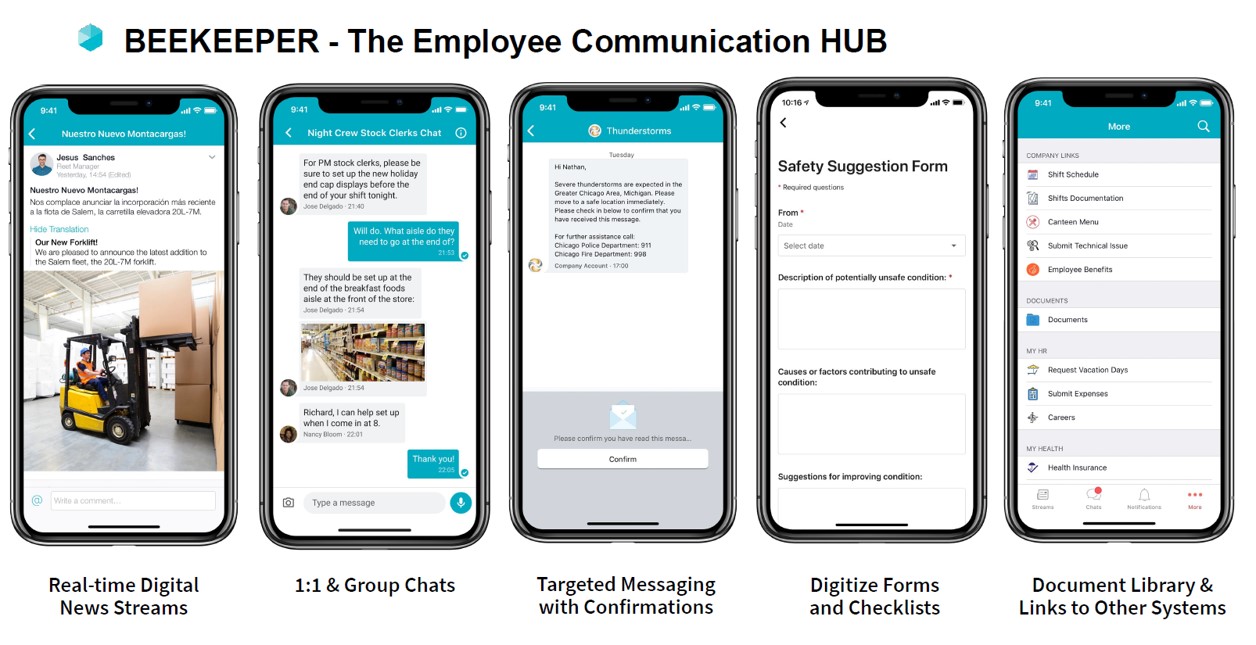Microsoft 365 and Teams are great solutions for office-based employees. But what about your frontline workers—the ones who aren’t sitting at a desk with a computer at their fingertips?
.
Encountered any of these Problems with using Microsoft for your Deskless Workers?
Topics: Internal Communications, Employee Experience, Best Practice, Operational Efficiency
The 10 Best Survey Questions To Ask your Employees
"The more you know, the more you think you don’t. The more you don’t know, the more you think you do." - inspired by Aristotle and Albert Einstein
As a leader you need feedback from your team to succeed.
Collecting employee feedback regularly and frequently through employee surveys is an essential part of assessing internal communication strategies, operational efficiencies, and improving workplace culture.
Companies are now turning to employee surveys to gain organizational insights they can take immediate action on. Best of all, there are now ways to collect the feedback you need to make concrete improvements in real-time.
Topics: Employee Engagement, Employee Experience, Best Practice, Operational Efficiency, Tool
People Give You 9-months-notice Before The Notice Letter
Does your organization have an annual employee engagement survey and then nothing else to gather feedback from your people?
No Pulse Surveys?
No communication channel where employees can provide their feedback whenever they feel like it?
Well, how then could your organization accurately capture those 9-month warning signs?
Topics: Employee Experience, Best Practice, Operational Efficiency
Reach your entire workforce to unleash untapped potentials
I hope you catch my idea.
Let me ask you a few questions to reflect upon.
What is one of the last competitive edges any business could sharpen?
Your product?
Anyone can copy your product in shorter and shorter periods of time.
Topics: Employee Engagement, Internal Communications, Employee Experience, Best Practice, Operational Efficiency
“Job-Hopping on the rise” – How to make them stick with you longer
Life is work.
Work is life.
Life is all about relationships - and work is no exception.
In fact, the key to long-term happiness and fulfillment is “our relationships.”
This is what Harvard's legendary Grant and Glueck Study found out over the last 80 years:
"The quality of our work-life - emotionally, physically, and mentally - is directly proportional to the quality of our relationships."
Topics: Employee Engagement, Employee Experience, Best Practice
We are in the midst of The Great Reshuffle with many people changing jobs within the frontline industries.
Topics: Employee Experience, Best Practice, Operational Efficiency
Create an Internal Communication Strategy to stay in tune with your people
As more digital tools enter the workplace, organizations should pay particular attention to the actual, not promised, productivity within their workforce. According to PwC’s Global Workforce Hopes and Fears Survey 2022, one of the biggest challenges they identified is the need to improve what is often called the “employee experience.”
Topics: Internal Communications, Employee Experience, Best Practice, Operational Efficiency
Studies have shown that the majority of all staff turnover happens within the first year. Highly engaged employees, however, resign less frequently than disengaged employees.
In your mind, when is an employee’s engagement level at the highest?
On the day an employee signs the offer letter their employee engagement is presumably at a peak.
Why would any organization want to let it drop by missing the opportunity to keep that momentum up?
Topics: Employee Experience, Best Practice, Operational Efficiency
9 things You Could do Better when Communicating with your mobile workers
Companies are quite adept at managing how they communicate their messages outside the company and towards their target customers. They have entire departments and teams of experts that strategize an external communications strategy and implement this through a well-thought-out communications plan.
But what about internal communications? This is the act of conceptualizing and implementing a communications strategy targeted towards your own employees. This often does not receive the same attention and focus that external communications receives.
But why is this the case?
Topics: Internal Communications, Best Practice, Operational Efficiency



